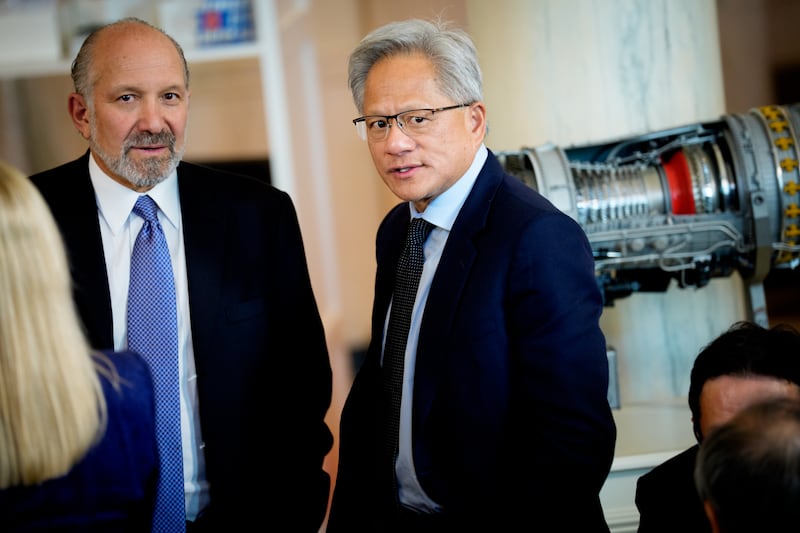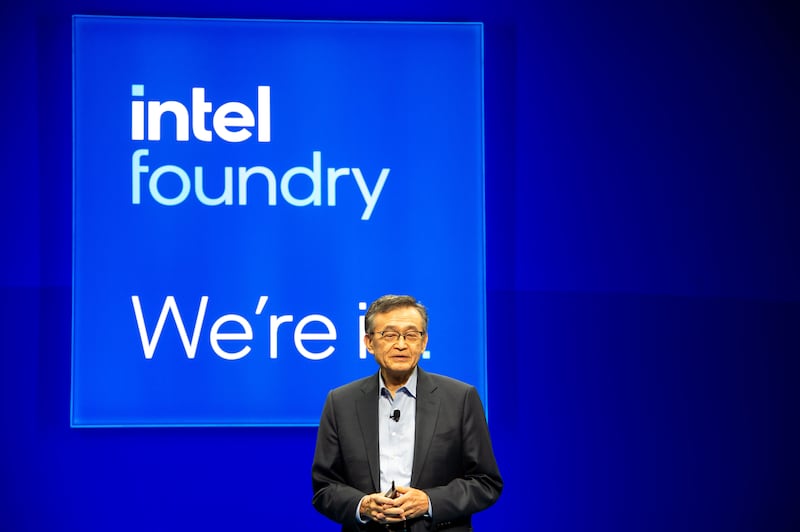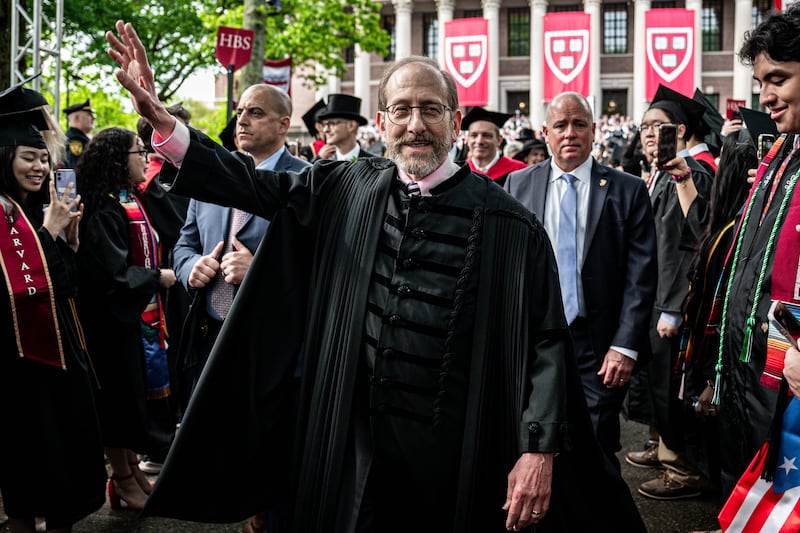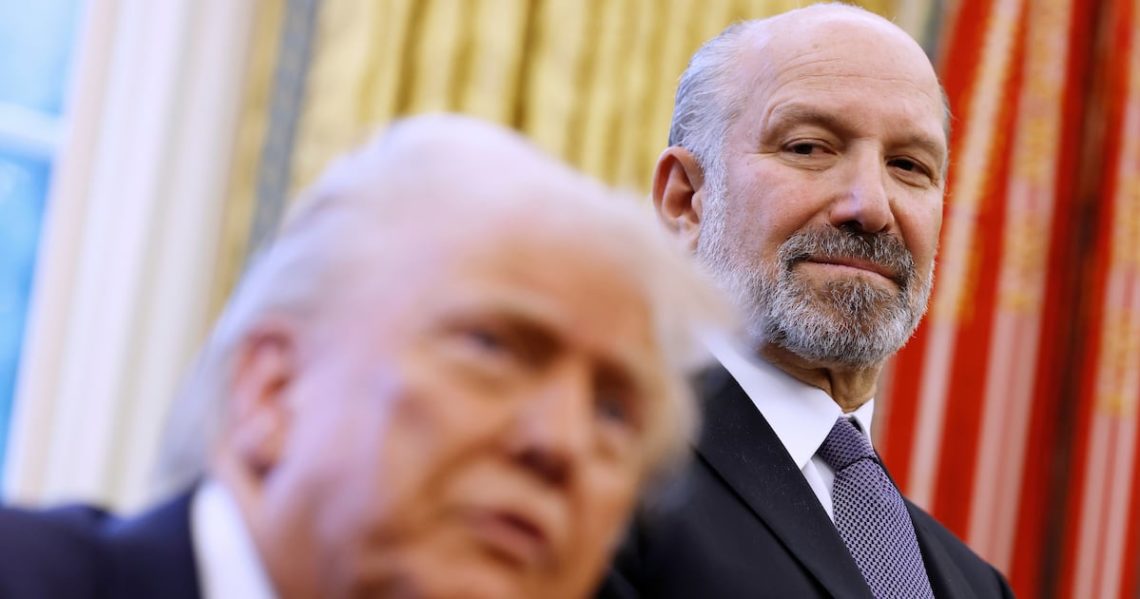Commerce Secretary Howard Lutnick has announced who the Trump administration plans to target next, following its successful shakedown of U.S. tech companies.
Lutnick revealed he was now turning his attention to universities holding patents that were developed using federal funding.
The White House agreed last month to allow chip maker Nvidia to sell an advanced artificial intelligence chip to China—where the company says there’s a $5.5 billion market for its H20 chip—in exchange for a 15 percent levy on the sales.
President Donald Trump also announced the government was taking a 10 percent stake in Intel worth $11 billion in exchange for paying out grants that had previously been awarded under President Joe Biden’s U.S. CHIPS and Science Act.
During an interview with Axios, the site’s founder, Mike Allen, asked Lutnick who was next and what other similar deals the administration planned to pursue.

“I think universities, who are getting all this money,” Lutnick said. “The scientists get the patents, the universities get the patents, and the funder of $50 billion—the U.S. government—you know what we get? Zero.”
“In business, if I gave them 100 percent of their money, I would get half the profits, with the scientists,” he continued. “So, I think if we fund it and they invent a patent, the United States of America taxpayer should get half the benefit.”
In 2023, the last year with data available, American colleges and universities spent about $109 billion on research and development, with about 55 percent of the funds coming from the federal government, according to the Congressional Research Service.
Under federal law, universities, businesses, and non-profits that receive federal research grants are allowed to pursue and retain ownership of any patents resulting from the government funding.

Law firm Kilpatrick Townsend & Stockton explained that if the government determines that the funding recipient is utilizing those inventions effectively, it can grant compulsory patent licenses to third parties.
The government, however, can only exercise these so-called “march-in rights” under certain circumstances, such as if the grant recipient fails to achieve “practical application” of the invention, or doesn’t comply with requirements for domestic manufacturing preferences.
Officials can also grant third-party licenses in cases where public health and safety needs are not being met.
Before the Trump administration, no federal agency had ever exercised those march-in rights. Last month, however, Lutnick sent Harvard University a letter demanding a list of all the school’s patents that stem from federal funding.
Taxpayers deserve the benefit of the bargain. If Harvard won’t honor the Bayh-Dole Act, then we will find someone who will. pic.twitter.com/8U7yJtYacS
— Howard Lutnick (@howardlutnick) August 8, 2025
The letter—which came amid a larger battle between the university and the administration—said the Department of Commerce was initiating an “immediate comprehensive review” of Harvard’s compliance with federal funding requirements.
It also stated that it was initiating the march-in process for any patents or inventions deemed non-compliant.
During his Axios interview, Lutnick said he planned to send a similar letter to the University of California system.
“I think it’ll be a few universities to start, and then it’ll become a master deal,” said Lutnick, who was featured as the inaugural guest on the site’s new interview series, The Axios Show.
The outlet’s founder Jim VandeHei has accused other news organizations of getting “way too damn emotional” when it comes to covering Trump, whose team has approvingly quoted Axios’ coverage of the administration over the past several months.

Lutnick’s implication seemed to be that the Commerce Department will use the march-in rights as leverage to negotiate a deal, taking a cut of the universities’ patent revenue, just as the administration used the threat of tariffs and export controls during negotiations with Nvidia and Intel.
The Daily Beast has reached out to the Department of Commerce and the White House for comment.
The patent revenue money, Lutnick added, could go to funding Social Security and reducing federal deficits.
“If we are paying for the research, if we’re paying for the lab—if it’s our money, the American taxpayer’s money—the American taxpayer should be a partner in the upside,” he said.
Notably, Lutnick didn’t say anything about sending similar letters to companies like Elon Musk’s Tesla and SpaceX, which according to The Washington Post have received at least $38 billion in government funding, including loans, subsidies, and tax credits.
The post Lutnick Reveals Trump’s Next Cash Grab Shakedown Target appeared first on The Daily Beast.




